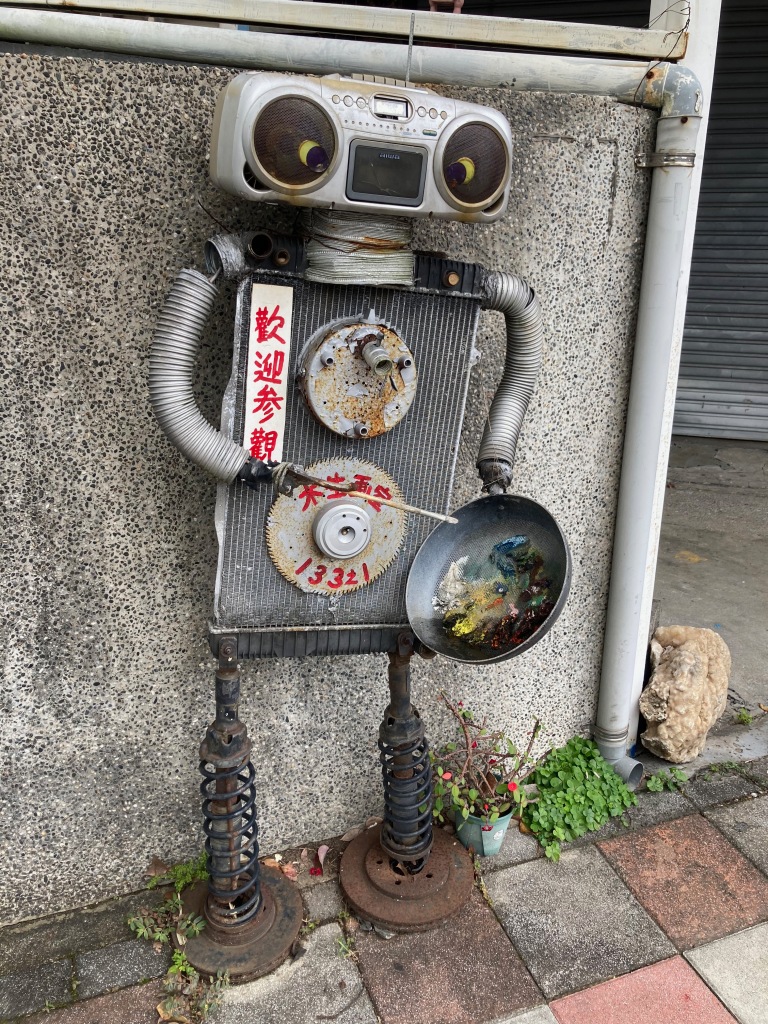
Last week I moved to Taiwan to travel and study Chinese for six months. Although I have been to Taipei before, this is my first time doing so as a Mandarin speaker and my first experience of living in a Chinese-speaking country for an extended period. Below are five things I learned from my first week here:
1. I’m a Beginner Again
Over the years I developed a degree of confidence in various aspects of my Chinese. I became comfortable conversing with native speakers, reading articles listening to podcasts on topics of interest and even hosted one of my own. However, most of my Mandarin-speaking friends in the UK are from the north of China. The difference between their Chinese and Taiwanese Mandarin – whilst not linguistically huge – does take some getting used to, especially the traditional characters and the accent.
This is especially the case during day-to-day interactions in shops and restaurants. Shopkeepers bombard you with a range of questions each time you attempt to buy something. These usually involve special offers or points schemes and are delivered in rapid, mumbled speech making it hard to catch, especially if there’s background noise. This initially made me feel like a beginner again. Performing the simplest tasks – like ordering coffee – was suddenly a challenge. Fortunately, before long you learn to anticipate these repetitive questions and respond to them swiftly.
2. Many Taipei Locals Speak to You in English
In Taipei, many waiters, museum workers and hotel staff will automatically speak to you in English before giving you a chance to demonstrate you can speak Chinese. This is understandable since only a small fraction of tourists can speak Chinese. But it isn’t very helpful when your main goal is to improve your language skills and become more comfortable dealing with Taiwanese Mandarin in everyday settings.
In some cases, even if you inform staff you can speak Chinese they will return to English the moment they notice you hesitating. To handle this I have adopted the identity of a Spanish man who can’t speak English (this is only partially untrue since I am half Spanish.) Whenever a staff member launches into English I immediately inform them that I don’t understand English leaving them with no option but to communicate with me in Mandarin.

3. Chinglish is the Biggest Communication Barrier
Some staff whose English level isn’t very high will throw in random, badly pronounced English words when speaking Chinese. They do this out of the kindness of their heart and because they think it will help foreigners understand better. Unfortunately, it has the opposite effect for me and makes it much harder to understand than if they stuck to Chinese.
Last week I went to a Korean-style barbecue restaurant. The waiter was explaining how to cook the piece of meat on the barbecue. He said “它一mù!就把它翻出来” To me, it sounded like he had randomly inserted the Chinese word for ‘wood’ 木 (mù) into what would have been a perfectly intelligible sentence if he’d used a verb instead. “When the piece of meat wood! turn it over.” Eventually, he said the full sentence in Chinese: “它一动就把它翻出来.” It turned out he had replaced the Chinese verb 动 (dòng) with his attempt at pronouncing the English word ‘move’.
4. The Switch to Traditional Characters Isn’t That Hard
Many aspects of learning Chinese are just as hard – if not harder – than they initially seem. Fortunately learning traditional characters when you’re already comfortable with the simplified system is easier than it initially appears.
A week ago, when Taiwanese friends sent me messages in traditional characters I’d have to convert the text to simplified to understand. I’ve since been using Hack Chinese to drill flashcards daily, focusing on the most common traditional characters which differ from their simplified counterparts. After a few days of this, I can already read text messages with few problems. News articles and non-fiction books remain out of reach. But I hope to overcome this problem within a month, in time for my Mandarin course at NTU.
How about you? Have you spent time living or travelling in Chinese-speaking countries? What have you found to be the main challenges and how did you overcome them. Let me know in the comments!
*Join our Facebook community to connect with other learners and get access to our weekly group language exchange call
*Subscribe below for regular podcasts, blogs and updates from our community pinged straight to your inbox
Have a good time Mischa. Thinking of your adventure.
LikeLiked by 1 person
Enjoy your time there!
LikeLike
Thanks! 🙂
LikeLike
Wow, so fun to hear an update from you from Taiwan! Thanks for sharing. I just got back from a long vacation there and wanted to comment on your “Chinglish” point above. I think some Chinglish is actually part of life in Taiwan and you should try to embrace a little bit of it. I’ve noticed in a lot of interactions with Taiwanese friends and family, media, and social media – English words and phrases are thrown in much more commonly than in mainland China. Many conversations I listened to among Taiwanese family (not to me, a native English speaker, but to each other) included a lot of keywords in English. I repeatedly heard small bits of English in tv shows and podcasts. I think being able to decipher some Chinglish is part of life on the island 😆
Best of luck on your academic studies and also wishing you well on these unique social discoveries, like the prevalence of Chinglish! Haha
LikeLike